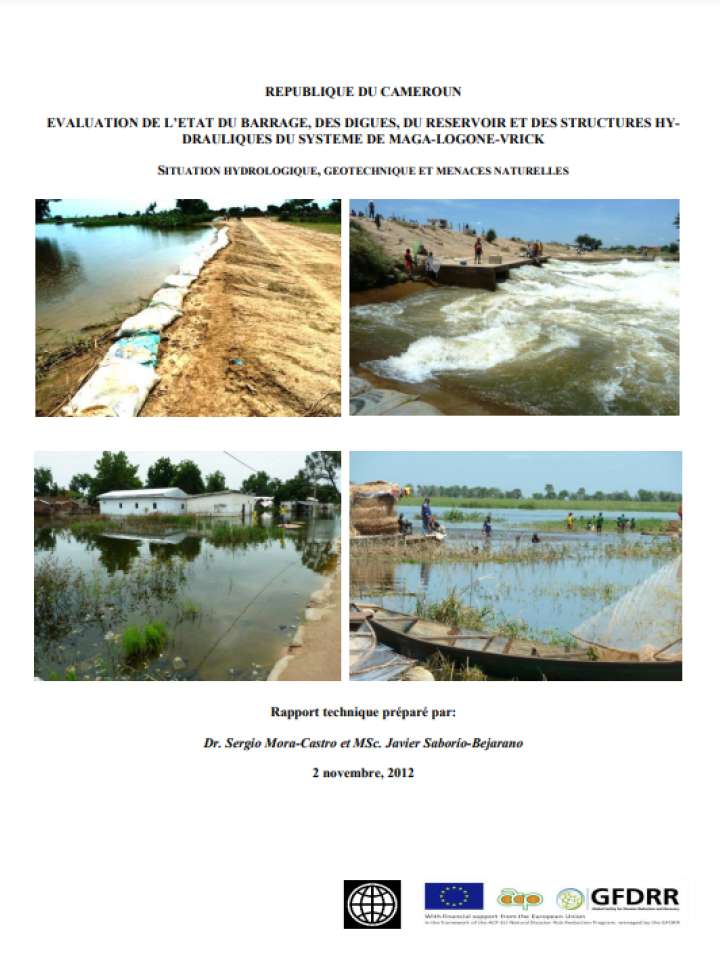Post-Disaster Needs Assessment of 2012 Floods in Cameroon
Towards the end of August and the beginning of September 2012, heavy rains (around 50 years of return period) affected the North and Far North regions of Cameroon. These resulted in the flooding of the Tsanaga, Boula, Grueleo, Vrick mayos and the Logone river and the exceptional rise in the level of Lake Maga (about 312.50 m SNC). On the date of the field visit (September 26-30, 2012), the section between Mara and Pouss of the Logone dyke was not accessible by land and, according to SEMRY officials, has several breaking points at about 35% of its length. Infiltrations, foxes and small overflows in the body of the Maga dam and the Logone dyke, weakened their structures, caused partial ruptures and nearly caused a disaster for the local population (about 120,000 people), their habitat , their livelihoods, the rice fields and the environment. Emergency interventions, with the placement of bags of earth and artisanal injections of cement and sand grout, carried out by local residents, SEMRY and the army, helped to mitigate the likelihood of a violent rupture of the dam of Maga and the sudden emptying of the tank.
The Government of Cameroon (GoC), through its Ministry of Economy, Planning and Regional Development (MINEPAT), has requested the support of the World Bank to assess the rehabilitation of the dam and its works annexes, in order to avoid their collapse in the short and long term.
